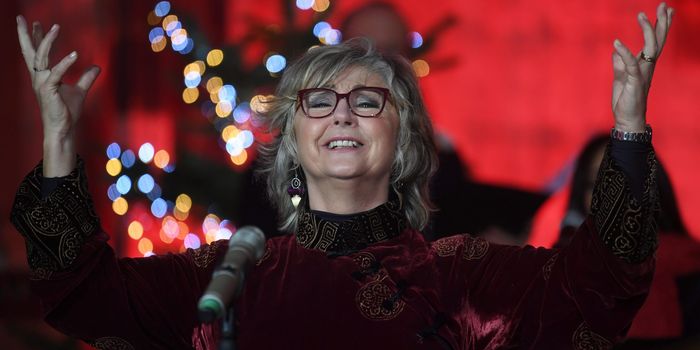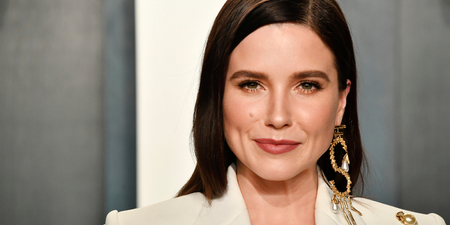“Why wouldn’t I want to be in a role which basically epitomises the strength of women?”
My Fair Lady is coming to the Bord Gáis Energy Theatre in October, but for this production, things have changed.
Traditionally an old, but classic, musical that depicts women in a way that reflects not only the time it was set, but also the time it was made, this updated version is far from it.
Still maintaining the story we all grew up with, the show has made small adjustments during its Broadway and West End runs to ensure it works for an audience in 2022.
Adding in ensemble members dressed as suffragettes and tweaking the ending to make more of a feminist stance, the show is a lot more appealing in today’s world than the 1956 version.
Speaking to Her.ie, Lesley Garrett, who is set to star as Mrs. Pearse as it comes to Dublin, expressed just how important it was to include these changes.

“He’s gone right back to the original of George Bernard Shaw’s Pygmalion, and Shaw was way ahead of his time. Of course, a wonderful Irish writer and the people who are strongest in this piece are women. As an original feminist from the 60s and 70s, I just love the way that Bartlett has demonstrated, by going back to the Shaw, he’s toughened it up and made it what it should be and what Shaw always intended it to be which is a fantastic homage to the strength of women,” the soprano said.
“The three women in this musical are just so strong and Higgins, if you look at him, despite the fact that he denounces women, his life is completely run by and organised by women. Shaw could see this, he would see that women were repressed by these terrible stereotypes and attitudes that men hoisted upon women. He himself was a suffragette, he believed in women’s suffrage and votes for women and Bartlett has very cleverly involved a wonderful suffragette march in one of the chorus scenes.
“For that reason, why wouldn’t I want to be in a role which basically epitomises the strength of women?”
Speaking about the ending of the show, we are used to the film version when Eliza stays with Higgins and the credits appear, but in this, it’s gone for a more feminist feel.
“This production particularly is relevant, especially when she [Eliza] walks away at the end. We all hate the way the Hollywood ending happened, having her stay and go get his slippers. But this absolutely illustrates that she took the strength that he [Higgins] provided but she really took his word and used it to better herself,” she added.
“What better message can I be involved with? I think it has to be set in its time, I don’t know if you could update it.”















































